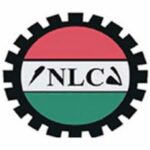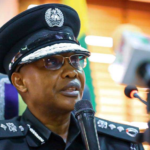The media is an institution within the society that informs, educates and orientates people as regards the rights, obligations and interests of individuals and groups. At the same time, it entertains them to lessen the effects of the obligations expected of them by the society. The forms of media that carry out these responsibilities include the conventional media i.e. electronic (radio, television), print (newspapers, magazines, journals, books, posters, handbills, billboards etc.) and most recently the unconventional media i.e. the internet and computer which comprise both electronic (videos) and print (online newspapers), respectively.
The roles of the media within the society affect every aspect of human life and harmonise the various organs of the state, as well as the governed. These roles also encourage all to stand on their toes because the mass media make people accountable. The mass media check excesses, correct abnormalities, advise the leaders and the led, educate the youth and the aged, entertain men and women, harmonise the interests of the weak and the strong, reinforce the voice of the voiceless and support development and transformation. However, these roles are performed within the scope of law and ethics.
Law is as old as man himself. Law can be traced from the Holy Bible in Genesis, Chapter 2 verses 16 and 17 and in the Glorious Qur’an, Chapter 2 verses 35 and 36 where God created Adam and his wife, Eve and put them in the Garden of Eden (Bible) or paradise (Qur’an) and enacted a law for them (do’s and don’ts ) to serve as their guiding principle. This law set for them the limits in the use of the provisions in the garden/paradise. God also stipulated the measure for the violation of the law and the punishment that goes with it.
Another law that testifies to the earlier historical record of law is the Mosaic laws (10 commandments) in the Old Testament. Similarly, law came into the society to define individuals’ rights, interests and obligations and to set limits to which a right is exercised in relation to others’ rights and obligations. Hence, the law remains an umpire.
Therefore, whether divine or man-made, law is law, once it satisfies the stipulated conditions of controlling, regulating, enforcing and punishing. Law is all-encompassing; that is why every profession has its own laws guiding its practice. The laws that control, regulate, enforce and punish in the operations of the mass media are called Media Laws. Media laws go side by side ethics of the profession which are used to regulate the journalists themselves. Ethics is derived from the Greek word “ethos” which means custom, usage or character. Ethics is often thought of as a rational process of applying established principles when two moral obligations collide. Ethics is a set of principles of conduct governing an individual or group. It is the science of rightness or wrongness of conduct.
Ethics is the foundation of morality and law in society. Every society needs a system of ethics or morals for peace, stability and cohesion. It is a system of ethics that the society uses as a guide in judging and assessing conduct and actions. It is ethics that guide personal, interpersonal and public relationships. Without ethics there won’t be law and without law, there will be anarchy in the society. Without ethics, morality and law, society will be brutish and short. Ethics is required for social stability, social hierarchy, promotion of social ecology to resolve conflicts and clarify values.
The culture, civilisation, customs and religion of a people determine the values they will regard as ethical and the ones they will see as abominable. It is therefore necessary, if not mandatory for every society to have a generally accepted level of ethics or standards in order to ensure stability and peace, if it is to progress.
It is with regards to this that the journalism profession, like every other profession, promulgated its own code of ethics to guide its practice. It is the pillar on which the profession of journalism is built. Without its application to news gathering and production process, the profession will lose its integrity. There are numerous ethical principles but the following are some of the core universally acknowledged for media practice: truth, objectivity, fairness, accuracy, balance, comment, lack of bias, impartiality, prejudice etc., in addition to statutory bodies that regulate its activities. In Nigeria, these include the Nigeria Union of Journalists (NUJ), the Nigeria Guild of Editors (NGE), the Newspaper Proprietors Association of Nigeria (NPAN), the Nigerian Institute of Public Relations (NIPR), the Advertising Practitioners Council of Nigeria (APCON) etc. These serve as the checks and balances of the practitioners.
Journalism is so important a profession that it compels the world over to deem it fit to make provisions in the various constitutions to defend its freedom. This is the reason why freedom of speech is guaranteed under international law through numerous human rights instruments, notably Article 19 of the Universal Declaration of Human Rights and Article 10 of the European Convention of Human Rights. In view of this, the Nigerian Constitution, Section 39 (1) provides freedom of expression, including freedom to hold opinion, to receive and impart ideas and information without interference. This is represented in the Freedom of Information Bill (FIB). This freedom includes freedom to publish news, as also enshrined in Article 25 of the Nigerian Constitution. It is this freedom of speech that translates to Press Freedom.
Freedom of the Press is the guarantee by a government of free public press for its citizens and their associations, extended to members of news gathering organisations and their published reports either through the print or electronic media. With respect to governmental information, a government distinguishes which materials are public or protected from disclosure to the public based on classification of information as sensitive, classified or secret and being otherwise protected from disclosure due to relevance of the information to protecting the national interest.
In developed countries, freedom of the press implies that all people should have the right to express themselves in writing or in any other way of expression of personal opinion or creativity.
Furthermore, the importance of journalism is expressed in the notion of the fourth branch of government (fourth estate of the realm) to compare it with the three arms of government, namely: the Executive, the Legislature and the Judiciary. As Edmund Burke is quoted to have said: “Three estates in Parliament; but in the Reporter’s Gallery yonder, there sat a fourth estate more important far than they all.” It is therefore believed that a free and vigilant press is vital to restrain corruption and injustice at least to the extent that public opinion can be roused as a result of press investigations and comments. Over time, a number of injustices and wrongdoings have been uncovered as a result of the initiative taken by newspapers and magazines. A ready example is the case Dele Giwa of the Newswatch Magazine uncovered in 1986 about Gloria Okon, said to have led to his assassination. Another is when the federal government in 1984 alleged that two journalists with the Guardian Newspaper, Tunde Thompson and Nduka Irabor, published fake news against it because they refused against all odds to disclose their source of information. This led to their detention for one month without trial and later imprisonment for one year after trial in 1984.
In practice, however, the right to freedom of speech is not absolute in any country, although the degree of freedom varies greatly. Having accepted that the freedom of press is vital for the mass media and media practitioners to play their roles in safeguarding public interest, it is pertinent to ask if the press enjoys the freedom in Nigeria? Threatening press freedom is to set limits, guidelines or laws which the press must follow in the practice of the profession. It has been frequently alleged, especially in Nigeria, that the freedom of the press is not achievable because of the ownership structure or capitalist owners, advertisers, national security and the interests of the public. In the past, obnoxious decrees by the various military regimes, such as the Public Officers (Protection Against False Accusation) Decree No. 4 of 1984, Nigeria Press Council Decree No. 59 of 1988, National Broadcasting Commission Decree No. 28 of 1992, Treason and Treasonable Offences Decree No. 29 of 1993, Offensive Publication (Proscription) Decree No. 35 of 1993, to mention a few, somehow limited the freedom of the press to practice efficiently.
Although journalists practice their profession within the purview of ethical principles, the law most often than not, springs up to curtail its activities in the form of defamation (libel and slander), sedition, privacy, obscene, indecent and harmful publications, copyright etc.
As this article explores contempt of court, it is therefore imperative to define the term for better comprehension. Contempt of court refers to actions that obstruct or undermine the administration of justice. This can include publishing or broadcasting information that may be prejudicial to ongoing court proceedings or interfere with the judicial process. In Nigeria, a notable case of contempt against practicing journalists is that involving Media Trust Limited, the publisher of Daily Trust Newspapers. The organisation faced charges of contempt of court for an article published during the trial of former Chief Justice of Nigeria, Justice Walter Onneghen, which was deemed prejudicial. Reference: Daily Trust: Contempt of court in the Onnoghen case: Premium Times Nigeria, 27th January, 2019.
Thus, though the media has the freedom to perform its responsibilities but the freedom is not absolute, as it is closely monitored and checked by the law, professional associations, codes, statutory bodies and non-media mechanisms. However, in the midst of these bottlenecks, the media still ensures it discharges its basic functions in the public interest.
Nyitse and Wyorkson reside in Abuja
 Join Daily Trust WhatsApp Community For Quick Access To News and Happenings Around You.
Join Daily Trust WhatsApp Community For Quick Access To News and Happenings Around You.


